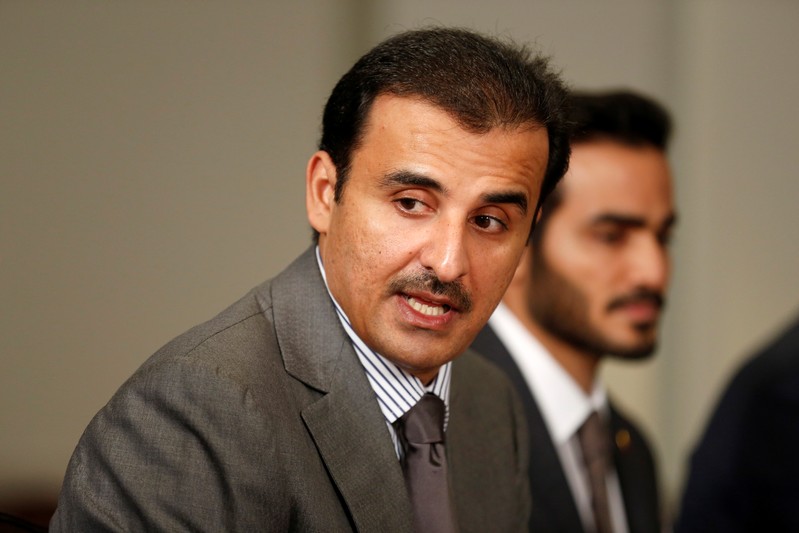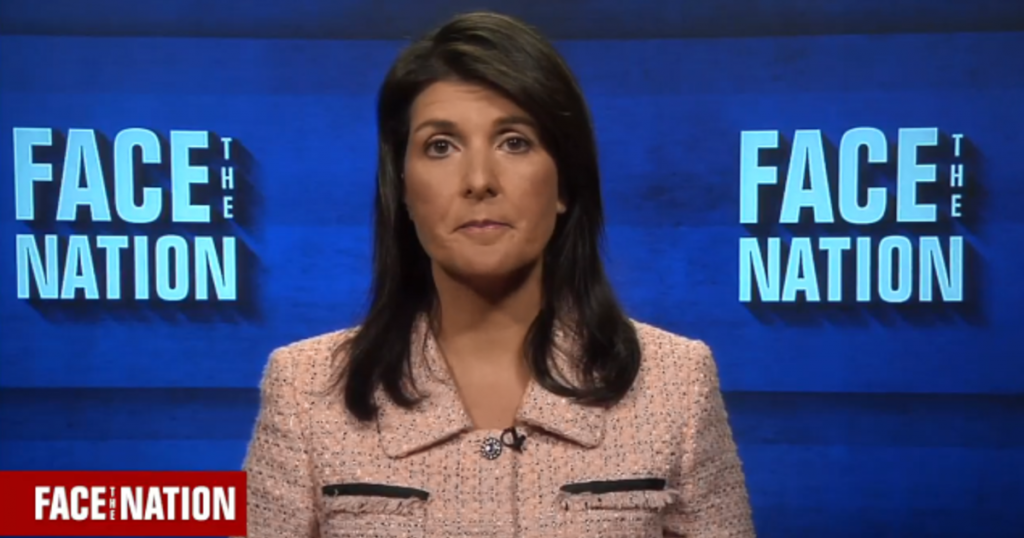
FILE PHOTO: Qatari Emir Sheikh Tamim Bin Hamad Al-Thani speaks with U.S. Secretary of Defense James Mattis (not pictured) during a meeting at the Pentagon in Washington, U.S., April 9, 2018. REUTERS/Joshua Roberts
April 15, 2018
By Stephen Kalin and Sarah Dadouch
DHAHRAN, Saudi Arabia (Reuters) – Saudi Arabia’s King Salman opened a summit of Arab leaders on Sunday by condemning an old foe, Iran, without making any reference to missile strikes by Western powers on Syrian government targets over a suspected gas attack a week ago.
Regional powerhouses Saudi Arabia and Iran have been locked in a decades-long struggle for supremacy that is being waged in proxy wars in several countries, including Yemen and Syria.
“We renew our strong condemnation of terrorist acts carried out by Iran in the Arab region, and we reject its blatant interference in the internal affairs of Arab countries,” King Salman said in the eastern Saudi city of Dhahran, without giving specifics. Iran denies the charges.
King Salman made no mention of Saturday’s missile launch by the United States, Britain and France against three alleged chemical weapons facilities in Syria. The Syrian government denies using – or possessing – chemical weapons and said the strikes were an act of aggression.
Saudi Arabia and its allies expressed support for the strikes on Saturday, but Iraq and Lebanon have condemned them. Other countries like Jordan and Kuwait refrained from taking a position, instead renewing calls for a political solution to the multi-sided war which has killed at least half a million people in the past seven years.
Military help over the past three years from Russia and Iran, which also backs Lebanon’s Hezbollah group and Shi’ite Muslim militias in Iraq, has allowed Syrian President Bashar al-Assad to crush the rebel threat to topple him.
Saudi Arabia, which takes over the rotating chair of the Arab summit from Jordan, announced that the current gathering would be named the “Quds (Jerusalem) Summit”, a reference to U.S. President Donald Trump’s decision last year to recognize Jerusalem as the capital of Israel.
King Salman said Saudi Arabia was donating $200 million to support the Palestinians, including $50 million for the U.N. Relief and Works Agency (UNRWA).
ARAB RIFT
Qatar did not send a senior official to the summit in a sign that its 10-month dispute with Saudi Arabia, the United Arab Emirates, Bahrain and Egypt is still a long way from being resolved.
The four countries severed diplomatic and transport ties with Doha in June 2017, accusing it of supporting terrorism. Doha denies the charges and says the boycott is an attempt to impinge on its sovereignty.
The Qatari delegation is being headed by Doha’s permanent representative to the Arab League, Saif bin Muqaddam al-Buainain, Saudi’s state news agency said, without elaborating.
Most of the 22 other countries are represented by heads of state or government. Qatari Emir Sheikh Tamim bin Hamad al-Thani headed Qatar’s delegation at last year’s summit in Jordan.
Sheikh Tamim returned to Doha on Saturday from a U.S. trip where he met Trump. Trump publicly sided with the Saudis and Emiratis early in the crisis but is now pushing for a resolution to restore Gulf Arab unity and maintain a united front against Iran.
Ahead of the summit, the four boycotting nations said their demands – including closing the Al Jazeera television station and reducing ties with Iran – were “a necessary basis” for a resolution to the crisis with Qatar.
Saudi Foreign Minister Adel al-Jubeir said on Thursday the crisis would not be discussed at the meeting, Al Arabiya reported.
(Writing by Maha El Dahan and Stephen Kalin; Editing by Ghaida Ghantous and Sonya Hepinstall)

